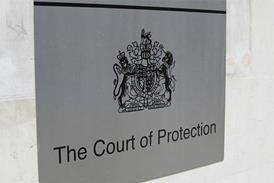In Matchmove Ltd v Dowding, the High Court was asked to decide whether an oral contract for the sale of land is enforceable.
As is well known, section 2 of the Law of Property (Miscellaneous Provisions) Act 1989 specifies certain formalities for contracts disposing of interests in land, which include that they must be in writing and contain all the agreed terms. This was passed to ensure certainty in these contracts and, inter alia, for the protection of consumers (see Formalities for Contracts for Sales etc of Land (Law Com. No 164)). In this report, which was the prelude to the legislation, the Law Commission also recommended that certain equitable remedies should nonetheless remain available to avoid ‘unacceptable hardship in cases of non-compliance’. The 1989 act contains exceptions, one of which relates to the ‘creation or operation of resulting, implied or constructive trusts’ (section 2(5)).
In our case this month, Matchmove Ltd v Dowding, the court was asked to rule on whether an oral contract for the sale of land was enforceable. The facts of the case were somewhat complicated but, in essence, a couple agreed, orally, to buy from a friend a plot of land for £120,000 in order to build themselves a house, together with a meadow for £80,000 on which they intended to keep horses. Before any written contract was entered into the buyers paid the seller £66,000 cash and once they had obtained planning permission he allowed them to start construction.
At this point a third party claimed that they had an easement over the meadow. Solicitors were instructed to deal with the conveyancing but the seller’s solicitors said that the seller would only be proceeding in respect of the sale of the building plot at this stage due to the dispute regarding the meadow. Correspondence was headed ‘subject to contract’; and in due course the contract was completed.
Eventually, the claim for the easement over the meadow was abandoned and the buyers then paid the seller the sum agreed for the meadow, even though there was no written contract for the sale of this between them. However, at this point the parties fell out and the seller only agreed to sell half the meadow, and returned half the sum paid. The buyers then brought proceedings seeking a declaration that the meadow was held on trust for them.
The High Court at first instance found that the seller operated on the basis that ‘a deal is a deal’. His Honour Judge McCahill QC said, ‘…his word was his bond. That was his reputation. It was how he did land deals’. The Court held that the buyers trusted him to keep his word and were, ‘prepared to be bound every bit as much…’.
The High Court held that the oral agreement to sell the meadow was enforceable through proprietary estoppel and constructive trust despite the absence of a written contract. The ‘subject to contract’ label on the correspondence was not material because it ‘followed the agreement which the parties had already made and which they regarded as immediately binding’.
The seller appealed to the Court of Appeal, which dismissed the appeal. The court considered a number of cases including the House of Lords decision in Cobbe v Yeoman’s Row [2008] UKHL 55. The present case was not a situation where the parties were not expecting to acquire an interest until a legally enforceable contract had been entered into. In the present case there was an oral agreement between the parties which both sides intended to be binding immediately. That agreement was complete as to all its essential terms and was enforceable as a common intention constructive trust had arisen.




















